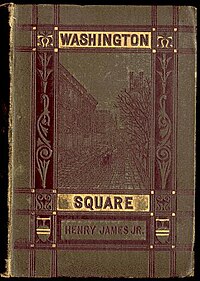Does your family accuse you of wasting time on the internet? Follow these sites on Twitter/Facebook/RSS and dazzle folks at the next family gathering with your academic and cultural insights.
- Academic Earth. Free university video courses spanning a range of subjects including history, chemistry and computer science. Why pay $50K a year when you can just take the courses online?
- All Things Human. This website has interesting things about the most fascinating creature. (Guess who’s the most fascinating creature.)
- Arts and Letters Daily. A great collection of articles, essays, disputes and reviews by a select collection of bloggers and publications.
- Arts Journal. A "daily digest of arts, culture, and ideas," sure to provide stimulation for aesthetes and intellectuals.
- BBC Dimensions (aka HowBigReally). This website takes important places, events and things, and overlays them onto a map of where you are. Seriously fascinating stuff.
- Big Think. The Big Think website is a collection of ‘global thought leaders’ who offer their thoughts and analysis on world events and other important developments
- Brain Pickings. A discovery engine for interestingness, culling and curating cross-disciplinary curiosity-quenchers, and separating the signal from the noise to bring you things you didn’t know you were interested in until you realize you are.
- The Browser. Collects journalism from around the internet judged to be of lasting value to the general intelligent reader. Also has a section where they invite experts to recommend the best reading in their given fields of interest.
- Cafe Scientifique. A forum for debating the latest issues in science and technology.
- Cosmo Learning. Founded with the objective of providing free learning from the world's top scholars, gathers and organizes educational content in an easy-to-use environment.
- The Edge. Seeks out the most complex and sophisticated minds, puts them in a room together, and has them ask each other the questions they are asking themselves.
- Eyewitness to History. A collection of eyewitness accounts and media from the ancient world through to modern history. Cut through the spin and get the information straight from the source.
- Forum Network. A website formed of a partnership between PBS and NPR that gives access to video lectures by some of the world’s foremost scholars, authors, artists, scientists, and policymakers.
- Gapminder. Shows the world’s most important trends: CO2 emissions, HIV spreading, internet users, and the wealth and health of nations.
- How Stuff Works. An enormous website that explains the workings of everything from electronics to déjà vu.
- Information is Beautiful. Takes information - facts, data, ideas - and turns it into well-designed charts, graphs and data visualizations
- Khan Academy. A not-for-profit dedicated to changing education for the better by providing a free world-class education to anyone anywhere.
- The Long Now Foundation. The Long Now Foundation hopes to provide a counterpoint to today's accelerating culture and help make long-term thinking more common. We hope to creatively foster responsibility in the framework of the next 10,000 years.
- Mental Floss. Where knowledge junkies get their fix. I'm definitely addicted!
- MIT Open Coursewear. You can read through course materials, lectures, even experience audio and video from the classroom.
- New Scientist. Carries new articles from the magazine as well as the NS archive of over 76,000 pieces
- Newser. A platform that aggregates current events from hundreds of newspapers and sorts them by their level of interest and popularity. Each news story is presented in a two paragraph, easy-to-read format, with links to the original story source. In this format, you can get the main idea of hundreds of events going in the world, and if you want a more in-depth idea, you can always click on the links to read the full article.
- Open Culture. "The best free cultural and educational media on the web" - and they aren't kidding.
- PSFK. Though focused on design, advertising, and technology, a must-read for anyone who wants to be on the cusp of new trends and emerging ideas
- TED. Brings together the most brilliant minds to teach us about issues that matter
- Thinking Allowed. The Thinking Allowed series aired on as many as 120 public TV stations in the U.S. and Canada for more than 18 years. The program features many of the world's leading scholars, researchers, writers and teachers and covers a broad range of topics
- Top Documentary Films. 100s of top quality documentaries
- The WWW Virtual Library. Relies on a consortium of experts around the world to present the richest content available on the Web in a broad range of subject areas.



